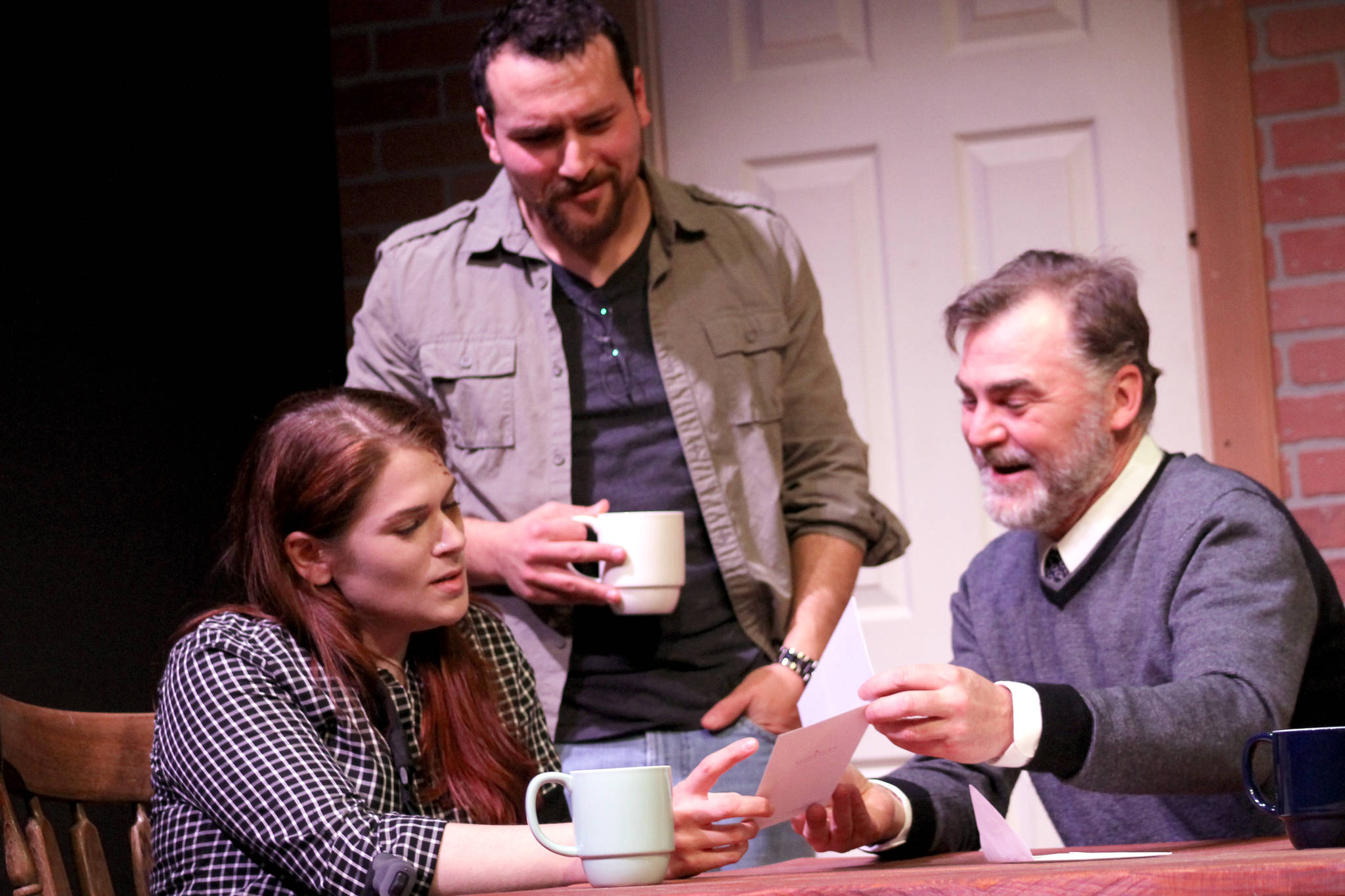During an era of fake news accusations and threats of violence against journalists around the world, the play “Time Stands Still” takes an in-depth look at what it means to be a foreign correspondent and photojournalist.
“It is a story overwhelmingly about people, what we owe ourselves and each other in relationships,” Brandon Cadwell, director of the play, said.
This is Cadwell’s debut as a director and he explained that he wanted to tell a story others might feel connected to.
“Times Stands Still” opens at the San Juan Community Theatre on Valentine’s Day. Audiences can see the show at 7:30 p.m. on Feb. 14 and 15, 20-22, and 27-29, or take in a matinee at 2 p.m. on Sunday, Feb. 16, 23 and March 1. Tickets may be purchased online at https://bit.ly/3947OZJ, by phone at 360-278-3210, or stop by the box office from noon-3 p.m., Tuesday-Friday or from 11 a.m.-2 p.m., Saturday. Tickets are $24 for adults; $13 for students reserved; or $5 student rush at the door only. Thursdays are pay what you can at the door.
Cadwell explained that he chose the play in part for its rich text and vibrant characters. Written by Donald Margulies, “Time Stands Still” was nominated for a Pulitzer Prize in 2009. Cadwell has been a long time fan of Margulies’ work, he said, with the 2000 Pulitzer Prize-winning “Dinner With Friends,” being one of his favorites.
“[‘Time Stands Still’] is a play full of heart and humor,” Cadwell said. Despite the deep subject matter, he continued, there are plenty of laugh out loud, side-splitting moments throughout the story.
The plot focuses on Sarah, played by Claire Atchley, and James, played by Xander DeAngeles. Sarah is a photojournalist and James a foreign correspondent who together covered the war in Iraq but have since returned home to Brooklyn. The other two characters in the play are the couple’s friends, Richard, played by Douglas Schirmer, and Mandy, played by Erin Wygant.
“Time Stands Still” also seemed particularly timely, Cadwell explained. Margulies wrote the story nine years ago, and although he left flexibility for varying locations, Cadwell said, the Middle East is still applicable nearly a decade later.
Forced to leave Sarah behind, James struggles with the guilt of abandoning her in a war zone after she is injured by a roadside bomb. The play dives headfirst into the mental health of journalists who are covering traumatic news.
“It is a really intense job, and they are very much on the front lines with the troops, and I am not sure if we have ever talked about that,” Cadwell said, adding that there are not enough mental health services provided for Post Traumatic Stress Syndrome symptoms journalists may experience, or support to help them cope with what they have witnessed.
During the course of the play, Cadwell explained, Sarah and James are given an opportunity for a normal, conventional life. If the couple takes that chance, they can live a life where each day isn’t a death-defying feat.
“I’m not sure that you can pick up the threads after going through that,” Cadwell said.
As James and Sarah face this choice, the story also highlights the inner struggle between professional success and maintaining interpersonal relationships, Cadwell added.
Working with a small, four-person cast has been nothing but a positive experience, Cadwell said.
“It really gives us the opportunity to examine the characters,” he explained, adding that he is loving directing and being a part of such a collaborative project. Watching as the actors delve into each character’s head and building a world for them to live has been an amazing process, he said.
“During one of the first readings there was a body tingling moment where each of these actors was bringing their special talent and we knew that the play was going to be something vastly different, unique,” Cadwell said.




